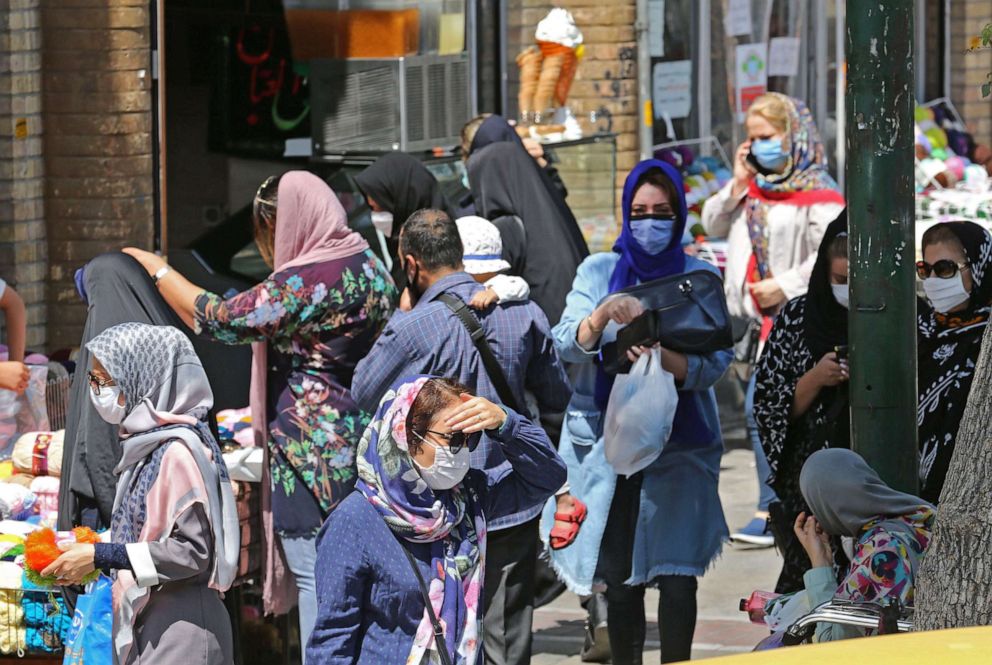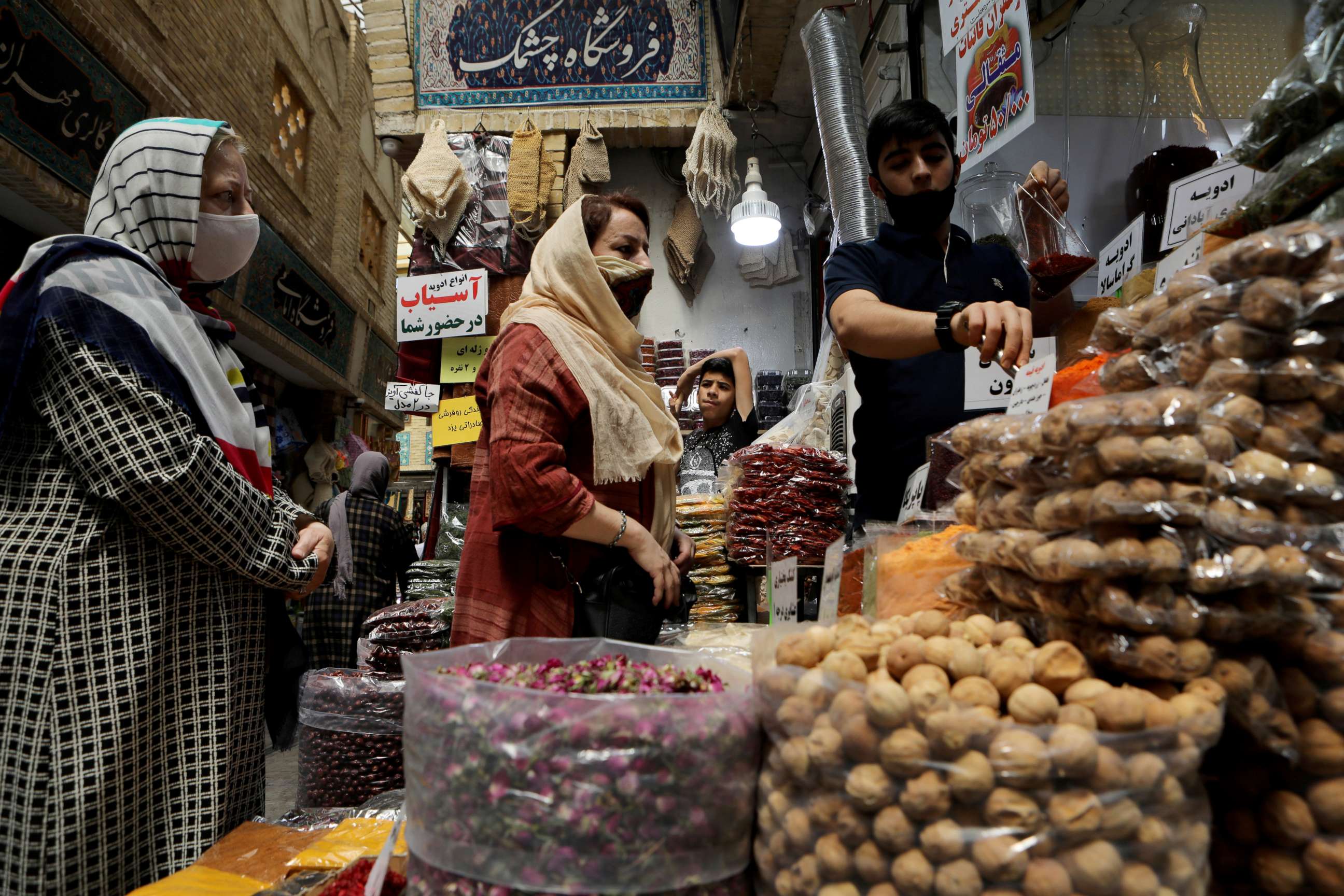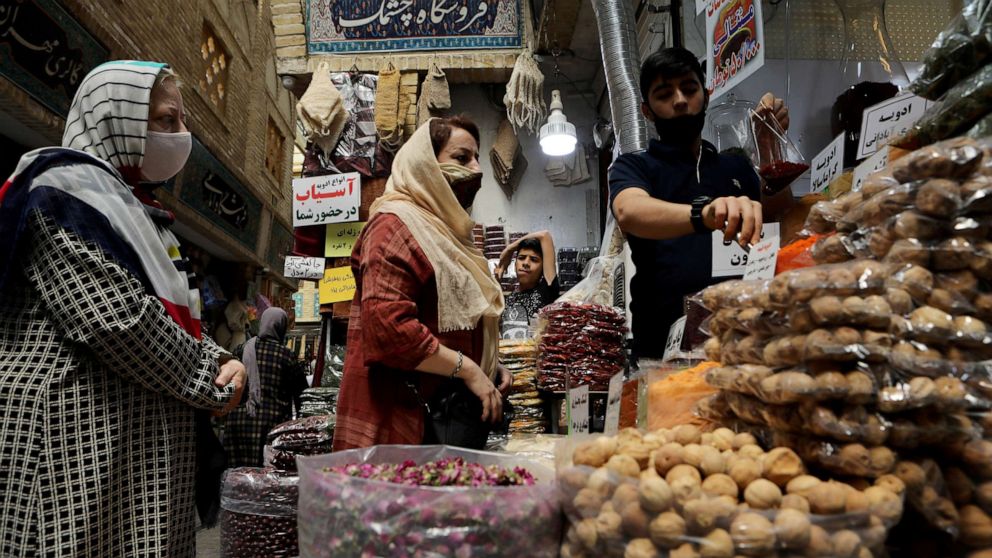Iranians shattered by economic pressures, rising rents amid COVID-19 pandemic
Abbas Tajik, 38-year old butcher in west Tehran, goes home at night feeling overwhelmed with depression after hearing his customers' stories of poverty. Day after day, he witnesses them becoming poorer and poorer. In the past six months, some of them have had to stop buying meat.
"My average customers could afford having meat at least once a month. But, now, many just have it a few times a year," Tajik told ABC News.
According to a poll conducted in July by the Iranian Students Polling Agency, 8.2% of Iranian households did not consume red meat last year, and 14% of households had red meat just "a few times."
Iranians' purchases have diminished like never before. Many people have cut down to buying only what they absolutely need to survive, in order to get through the suffocating economic situation in the country.
"Many people I know have stopped buying new clothes. It has been a long time since my wife and I have bought any clothes, neither for ourselves nor for our children," Tajik said. He added that they have not taken a trip for a while, but they used to travel around the country twice a year, before.

The minimum wage in Iran is approximately $100 to $125 per month, Tabnak News Agency reported Friday. However, Faramarz Tofiqi, head of the labor wage committee of the Islamic Labor Council, believes that the minimum wage must be at least $285 for a household of three people, as he told Jahan News in July.
Besides endemic corruption and domestic mismanagement in the country -- both which have made headlines on domestic media recently -- Iran's economy is terribly suffering from sanctions imposed by the United States. The situation has worsened since President Donald Trump's administration withdrew from the Iran nuclear deal in May 2018.
The deal had aimed to ease economic sanctions on Iran in return for Tehran's commitment to curb its nuclear programs, but the U.S. pulling out of the deal resumed the former sanctions, which badly affected Tehran's already ailing economy.
"The spike in the main items of households' purchase basket including transportation, rent, food, etc. requires the minimum wage of a three-member household to be at least 285 U.S. dollars," Tofiqi said.
He added that the coronavirus pandemic has also played a role in the dramatic increase in household expenses by adding more consumption of detergent and new items like masks.
The crisis has hit the housing market hard. Many property owners asked tenants for dramatic increases on rent -- usually without the help of a supervisory body controlling the contracts. Seeing this, the government was forced to step in and put a limit of 25% increase for renewing leases. However, decision has not been welcomed by property owners.

"People are desperate. The government's order cannot help them when the market is going its own way," Seifollah, 67, realtor in downtown Tehran, told ABC News. He did not want his last name mentioned for security reasons.
Realtors believe that property owners do not follow the government's orders mainly because the inflation rate of last year was almost twice the government's prescriptive rent limit.
The official inflation rate stated by the Central Bank was 41.2$, the highest rate in the past 25 years, as Mehr News Agency reported based on a letter from Abdonaser Hemmati, head of the Central Bank, to the judiciary in April.
"It shrinks my heart to see people coming to my agency feeling shy to say how much they can pay for rent," Seifollah said. "Sometimes they keep quiet until everyone else leaves, and then they whisper that they only have like $50 for monthly rent."
In another move to control the housing market and prices, officials banned the Iranian version of Craigslist to publish the prices in the housing section of the website.
"It has led to even more confusion. People have a difficult time comparing the prices now," Seifollah said. "These solutions are useless."




